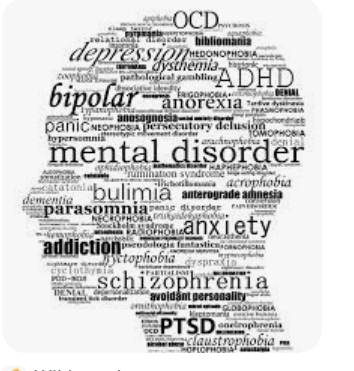As the World Commemorates the 2023 World Mental Health Day, major stakeholders have called on the Abia State Government to domesticate and implement the new Mental Health Act recently signed into law by the immediate past administration of President Mohammadu Buhari.
The Act, cited as “The Nigerian National Mental Health Act”, was passed into Law by the National Assembly on 3 December,2020 and assented by former President Mohammadu Buhari on the 28 December,2022, which provides for the establishment of Mental Services Department to promote and protect the right of persons with intellectual, psychological or cognitive disabilities, and, also to provide for enhancement and regulations of mental services in the country.
Speaking to Journalists as part of the activities marking World Mental Health Day under the theme “Mental Health Is A Universal Human Right,” the Director of the Amudo Integrated Community Mental Health Foundation, Rev Father Kenneth Nwaubani, emphasized that mental health is not a matter of charity but rather a fundamental right of all citizens.
Rev. Nwaubani pointed out that the global event, observed every October 10th, offers an opportunity to raise awareness about mental health-related issues and their impact on access to mental health services within nations.
Highlighting the importance of collaboration between healthcare stakeholders and the government, Rev. Nwaubani stressed the need for the operationalization of the Nigerian National Mental Health Act at the federal level, with subsequent domestication at the state levels.
Rev Nwaubani pointed out that stakeholders in the health care sector are engaging the government to operationalize the Nigerian National Mental Health Act at the federal level so as to ensure its domestication at the state levels.
He said, “The Nigerian Mental Health is doing alot to engage the federal ministry of health and other partners so that the operationalization if that Act would become a reality.
“We know that it is one thing to accent to a bill, it is another thing to make it functional. It is also the same government that would meet the fundamentals of that Act and make it workable because the bill has to do with funding,reviving the mental health system in Nigeria and policy drive.’
“So we are engaging other Stakeholders to see what we can do so that the law would become operational both within the federal level and across the state. Once we achieve federal compliance, states can proceed with its domestication“.
Rev. Nwaubani noted the escalating mental health crisis in Nigeria, with one out of seven individuals at risk of developing mental health issues, and stressed the need to empower government agencies responsible for regulating drug use to prevent access to drugs, particularly among the youths.
Addressing the discrimination against individuals with mental health challenges and the neglect of mental health, Rev Nwaubani emphasized that the Amudo center is actively working to raise awareness about mental health issues with the aim of address poor mental health knowledge, negative socio-cultural and religious perceptions and interpretations of mental health that promote stigma and discrimination.
He said the efforts would ultimately promote a human-rights-based approach to mental healthcare in Nigeria.
Rev. Nwaubani therefore called for the integration of mental health services into primary healthcare centers nationwide, changes in public and family attitudes towards individuals with mental health challenges, and policy reforms to enhance access to treatment for those affected.
“The WHO has said that non discrimination is the key to enforcement of our fundamental human right so we are trying to address the issue of neglect, abuse, non access to mental health facilities.
“Persons with mental health challenges have the right to family, the right to society, marriage, work and a right to health and of course mental health which we are saying today is their universal right”.
“The agencies that have to do with the control of drugs in Nigeria such as NAFDAC,NDLEA has to be strengthened so that they can curtail access to drugs by the young people
We have to embark on orientation of our young population.
“We are reducing Nigeria to a popular of people who have mental health problems because if about 30 million Nigerians have mental health problem, it is a country of mentally ill people.
“We have alot of work to do in Nigeria when it comes to social values and mental health”, Nwaubani noted.
In their separate remarks during a road walk to mark the event, Head of Psychiatric Department Federal Medical Centre, Umuahia Dr Chizoba Acho and a consultant Psychiatrist with FMC Umuahia Dr Abimbola Uthman said that the day provides stakeholders working on mental health issues the opportunity to talk about their work and what needs to be done to make mental health care a reality for people world over.
They called for an increased budgetary provision for the Mental health sector and stressed the need for people to always take good care of their mental health.

























